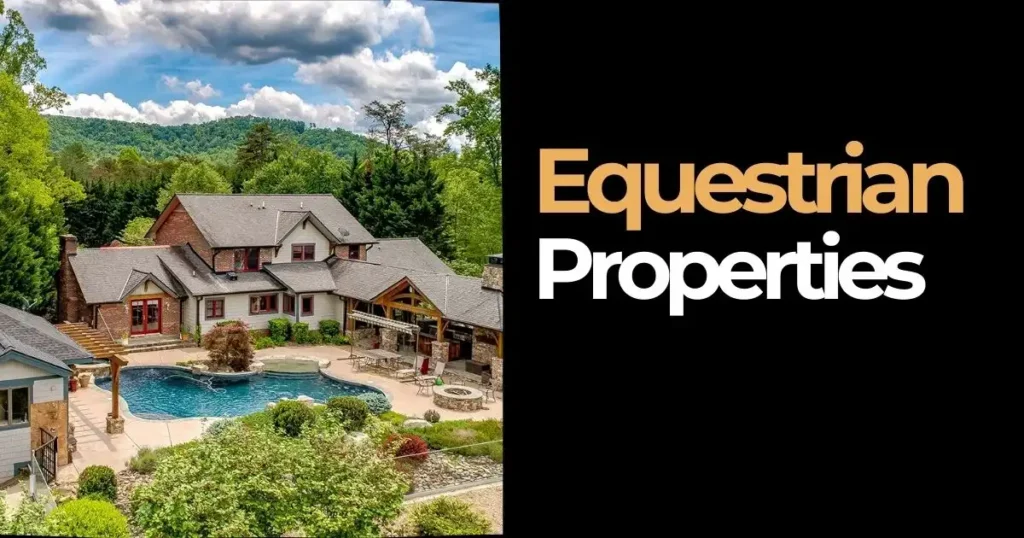Real Estate Niches and Investment Opportunities
Achieving success isn’t just about putting in extra hours—it’s about working smarter. One of the strategic and wisest decisions you can make is to narrow your focus by embracing a specific niche within the industry.
When individuals invest money, one’s aim is to generate earnings from it. Hence, developing a niche in real estate is a strategic move for agents to gain competence in the chosen specialization, making themselves streets ahead from competitors.
These niches can range from location and property types to serving specific clientele.
What is a Real Estate Niche?
A real estate niche refers to a specialized segment within the broader real estate market that agents focus on. It can include specific property types, client demographics, or geographical areas.
The real estate market is vast and varied, encompassing many different types of properties, each with its unique features, risks, and management approaches.
Given the diversity of the real estate market, investors frequently concentrate on specific “niches,” a specialized segments within the market. Here are the types of real estate niches that investors might consider:
1. Luxury Homes
Luxury homes tend to withstand economic changes better than other areas of real estate, making them highly profitable due to their higher commission rates per transaction.

Although breaking into this niche can be challenging and may not suit everyone, yet with the right skills and determination it can be a perfect fit.
Further, marketing luxury homes requires targeting a specific audience which can be more challenging; however, with the appropriate tools, knowledge, and mindset, success in this field is achievable.
2. Rental & Vacation Homes
Rental and vacation homes cater to a large market in the United States. As highlighted by the National Multifamily Housing Council, there are 43 million households being renters, and 36% of them residing in apartments.

The data suggests that a significant portion of the population continues to rent, indicating a strong demand for rental homes and spaces.
This niche encompasses various types of properties such as standard single-family homes, multifamily apartments, room rentals, full-service apartments, and student housing.
3. Waterfront Properties
Waterfront properties are highly sought after by homebuyers who can afford picturesque views of the ocean or a serene lakefront setting.

The target audience for this real estate niche consists of individuals willing to invest more in such properties.
Waterfront properties have distinct requirements, making them an excellent choice for specialization in coastal or lakeside neighborhoods.
4. Commercial Properties
Commercial properties are usually used for business activities such as malls, grocery stores, shops, and offices. The prices of these properties are heavily influenced by economic activity in their location.

Real estate agents specializing in commercial properties often earn the highest incomes, making it one of the top real estate niches worth exploring. On average, agents who sell commercial properties can earn around $90,000 annually.
Working as a commercial property agent differs from residential real estate due to the dynamic and challenging business environment. However, with the right mindset and dedication to learning the specifics of this niche, success is attainable.
5. Communities
Two specialized areas within this niche are gated communities and retirement communities. These types of communities typically attract buyers who desire specific amenities and are willing to pay homeowner’s association fees for security and upkeep.

In some areas, communities prefer to have one real estate agent handle all the properties within that community. This means you would assist both buyers and sellers in transactions specific to that development.
Various real estate niches, including luxury properties, retirement communities, gated communities, bank-owned homes, investment properties, land, acreage, and ranches, may require specific permissions, skills, licenses, or relationships that differentiate a generalist from a specialist.
6. Equestrian Properties
An equestrian property is a planned estate development where potential buyers can purchase a property with enough land to home a horse. These properties often feature a network of shared trails for riding.

Properties used for agriculture and/or horse stabling require specialized knowledge to value and market them properly. Sometimes, they fall under commercial land specialties, while other times, they are considered residential for small family operations.
7. Foreclosures
When a homeowner misses mortgage payments, they enter a pre-foreclosure stage. During this time, they have the opportunity to save their home by catching up on payments.

However, if they are unable to do so, it may be beneficial for them to sell quickly before the house goes into foreclosure.
Short sales occur when a homeowner owes more on their mortgage than the current value of their home. In this situation, they may decide to sell the property to minimize their losses.
In both scenarios, homeowners are in distress and may need to sell their property or risk facing foreclosure. Selling is usually the preferable choice among these options, but it’s crucial for sellers to act promptly. You can assist them in navigating these intricate transactions.
8. Investment
Investors offer agents specializing in real estate a valuable niche, particularly for those who prefer working with data rather than emotions.

They provide the potential for repeat business and remain active buyers even during recessions, seizing opportunities in favorable market conditions.
To attract investors, networking with property managers or hosting real estate investing workshops can be effective strategies.
When working with investors, agents should be prepared to extensively calculate return on investment (ROI) and provide off-market opportunities by building strong relationships with other agents.
9. Green Housing
Green housing has become a niche in real estate for several reasons. People are more concerned about the environment and want homes that are eco-friendly.

Governments offer incentives like tax breaks to encourage builders and buyers to choose sustainable options.
Technology has also improved, making eco-friendly features more affordable and easier to install. Additionally, the real estate industry sees the potential for profit by focusing on green housing, as it attracts buyers who value sustainability.
10. Log Homes
Log homes are buildings made with horizontal logs that fit together like puzzle pieces. These logs can be shaped into squares, crafted by hand, or processed with machinery.

People often call these kinds of homes by different names, such as cabins, hunting or fishing retreats, ski lodges, or mountain residences. These structures are popular in areas with abundant wood resources, where they offer a rustic and cozy living environment.
11. Probate Sales
For real estate agents seeking a niche, probate sales could be a promising option. These sales involve properties owned by deceased individuals, often without a will, making the process complex.

Specializing in probate sales means aiding the estate executor in selling the property, which includes negotiating with buyers, collaborating with legal and appraisal experts, and overseeing the transaction.
Despite challenges, probate sales present opportunities due to reduced competition. Mastering this niche can lead to a prosperous career as a probate real estate agent.
12. Residential
Residential properties are divided into various niches to cater to diverse housing needs. These include single-family homes, which stand independently on their own land, providing ample space and privacy for a single household.

Multi-family homes, on the other hand, encompass structures with multiple units, accommodating more than one family within the same building. This category, including duplexes and apartment complexes, serves as a significant segment of the housing market, offering options for both renters and investors.
Additionally, condominiums, or condos, represent individually owned units within larger buildings or complexes, appealing to urban dwellers and retirees seeking community living with shared amenities.
Explore Lucrative Real Estate Niches with RE Design
Unlock the potential for unparalleled earnings in the real estate market by delving into specialized niches. At RE Design, we empower agents like you to carve out your niche, establish authority, and skyrocket your income. With our expertise, you’ll transcend competition and dominate your market.
Final Thoughts
Finding your niche isn’t just about standing out; it is about thriving. By specializing in a particular market segment, you unlock a world of opportunities for growth, differentiation, and, ultimately, prosperity.
When selecting your specialized area of focus, consider your interests, strengths, market demand, and potential for profitability.
Remember, success in real estate isn’t just about what you know, but how well you leverage that knowledge to meet the unique needs of your clients.
So, dare to carve your path, seize those niche opportunities, and utilize your acquired expertise. The journey may be challenging, but the rewards are undoubtedly worth it.
FAQS
Which real estate niche makes the most money?
The real estate niche that typically yields the highest earnings is luxury real estate. Luxury properties command premium prices, resulting in higher commission rates per transaction for real estate agents.
Which type of real estate business is most profitable?
Commercial real estate is often considered one of the most profitable types of real estate businesses. Deals involving commercial properties, such as office buildings, retail spaces, and industrial complexes, tend to have higher transaction values and commission rates compared to residential properties.
What is the most profitable area of real estate?
The most profitable area of real estate can vary depending on market conditions and individual expertise. However, luxury real estate markets in affluent areas are often recognized as highly profitable segments of the industry.
What kind of real estate agents make the most money?
Real estate agents specializing in luxury properties or commercial real estate transactions tend to earn the highest incomes within the industry. Luxury real estate agents work with high-net-worth clients and premium properties, which often result in significant commission earnings per transaction.